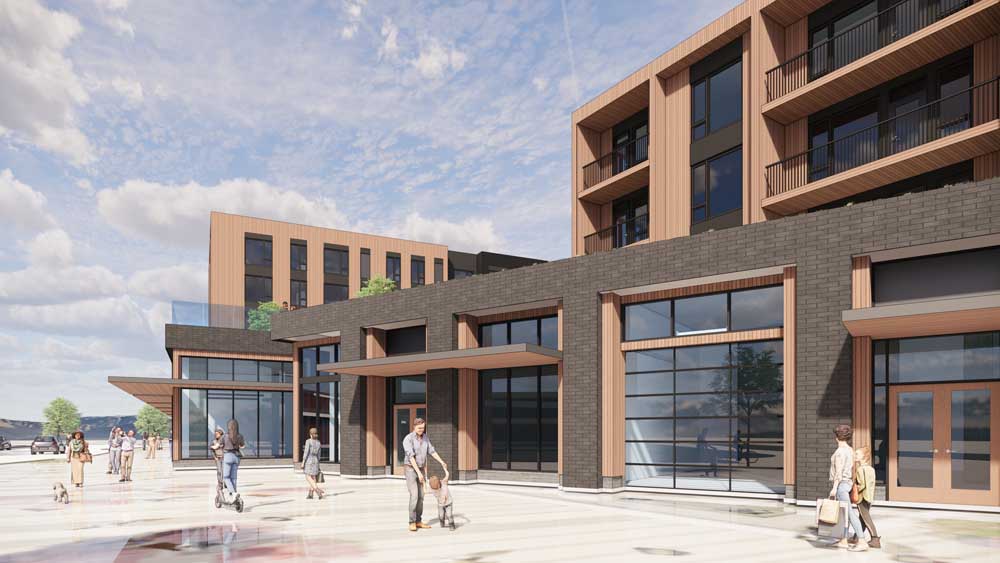Oregon builders competing with data centers for electrical components
Published 6:04 am Thursday, January 23, 2025

- Oregon builders compete with data centers for electrical supplies, causing delays in construction.
Oregon apartments builders are waiting months longer than they’re used to for the electrical components needed to power new units.
First came COVID-19 pandemic supply chain disruptions that beset the electrical components industry. Then came the artificial intelligence boom and, with it, blistering demand for data centers that swallowed up the available electrical gear.
The components used in data centers, the vast internet hubs that serve web pages and videos and process the human-like responses from interactive AI tools, are much the same as the ones apartment complexes use to keep the lights on.
So-called switchgears, which connect apartment buildings and data centers alike to the broader electric grid, can be about 7 1/2 feet tall, 3 feet deep and vary in length. They connect the building to the power utility and distribute the electricity that flows through hundreds of units in an apartment buildings or thousands of computers in a data center.
Corbett Clark, a vice president of Oregon operations for Merit Electric who primarily works with apartment builders, said the lead-time for buying switchgears was three months before the COVID-19 pandemic. Now a year is typical, he said, though sometimes the wait improves to 40 weeks.
“Suppliers are not able to keep up,” Clark said.
Data centers and apartments aren’t the only users of switchgears. Several industries vie for the parts, said Peter Skae, a managing director with real estate firm JLL who specializes in data centers.
But apartment developers are used to working as quickly as possible to avoid paying for the upkeep of an empty building — and a surge of interest in data centers has increased strain on supply lines. Delayed components can in some cases cause big, costly delays, at a time when Oregon’s apartment construction pipeline already lags what officials say is needed to dig out of a deep housing shortage.
Andrew Colas, president and CEO of Colas Construction, said his teams now try to lock in their electrical gear at the beginning of design, which can present “substantial” upfront costs with which developers didn’t previously have to contend.
Even getting orders in early is no guarantee of success. If the supplier says its delivery schedule slipped by 20 weeks, “there’s nothing we can do,” Colas said. “It’s just like, ‘OK, sorry. Back of the line.’”
Apartment builder Walsh Construction has grappled with electrical equipment shortages for at least the last five years that have affected nearly all its projects, said Brian Ames, one of the company’s project managers. The problem has forced developers to buy equipment before a project even starts to ensure it will finish on time.
For a yearlong construction project, Walsh orders electrical gear six months before the project starts in the hopes of receiving it on time, he said, but even those wait times are unpredictable.
“With the increasing focus on electrification and the surging demand for data centers, the need for electrical gear has skyrocketed,” Ames said in an email. “As a result, relatively smaller projects, such as multi-family developments, face significant challenges in acquiring the necessary equipment to power their facilities and ensure smooth operations.”
Electrical equipment manufacturers are trying to meet soaring demand by opening new plants, said JLL’s Skae.
One manufacturer, Eaton, recently announced it’s spending $1.5 billion to ramp up electrical component production.
However, Skae said, it will take time before manufacturers can train employees and begin to ship out products.
Builders, meanwhile, are adapting under pressure. Colas said his contractors have learned how to prepare apartments without the switchgears, then add them whenever they show up at the construction site.
But that approach can only go so far. Switchgears, Colas said, are “the brain of any building.” Without them, no one can occupy the apartments, and “the building does not function,” he said.
— Jonathan Bach covers housing and real estate. Reach him by email at jbach@oregonian.com or by phone at 503-221-4303.
Our journalism needs your support. Subscribe today.
©2025 Advance Local Media LLC. Visit oregonlive.com. Distributed by Tribune Content Agency, LLC.







